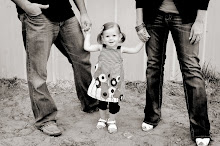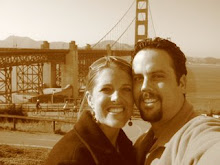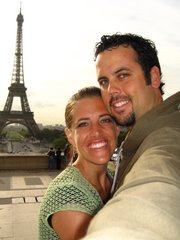I love this General Conference talk by President Thomas S. Monson. Sienna has been sick the past few days, and last night was a rough one. I just kept thinking about this talk and thought it was a good time to read it again (and I thought maybe some of you could use it as well!) I just cut/pasted some of my favorite parts.
Finding Joy in the Journey
I begin by mentioning one of the most inevitable aspects of our lives here upon the earth, and that is change. At one time or another we’ve all heard some form of the familiar adage: “Nothing is as constant as change.”
Throughout our lives, we must deal with change. Some changes are welcome; some are not. There are changes in our lives which are sudden, such as the unexpected passing of a loved one, an unforeseen illness, the loss of a possession we treasure. But most of the changes take place subtly and slowly.
This conference marks 45 years since I was called to the Quorum of the Twelve Apostles. As the junior member of the Twelve then, I looked up to 14 exceptional men, who were senior to me in the Twelve and the First Presidency. One by one, each of these men has returned home. When President Hinckley passed away eight months ago, I realized that I had become the senior Apostle. The changes over a period of 45 years that were incremental now seem monumental...
Day by day, minute by minute, second by second we went from where we were to where we are now. The lives of all of us, of course, go through similar alterations and changes. The difference between the changes in my life and the changes in yours is only in the details. Time never stands still; it must steadily march on, and with the marching come the changes.This is our one and only chance at mortal life—here and now. The longer we live, the greater is our realization that it is brief. Opportunities come, and then they are gone. I believe that among the greatest lessons we are to learn in this short sojourn upon the earth are lessons that help us distinguish between what is important and what is not. I plead with you not to let those most important things pass you by as you plan for that illusive and nonexistent future when you will have time to do all that you want to do. Instead, find joy in the journey—now.
I am what my wife, Frances, calls a “show-a-holic.” I thoroughly enjoy many musicals, and one of my favorites was written by the American composer Meredith Willson and is entitled The Music Man. Professor Harold Hill, one of the principal characters in the show, voices a caution that I share with you. Says he, “You pile up enough tomorrows, and you’ll find you’ve collected a lot of empty yesterdays.”
My brothers and sisters, there is no tomorrow to remember if we don’t do something today.
I’ve shared with you previously an example of this philosophy. I believe it bears repeating. Many years ago, Arthur Gordon wrote in a national magazine, and I quote:
“When I was around thirteen and my brother ten, Father had promised to take us to the circus. But at lunchtime there was a phone call; some urgent business required his attention downtown. We braced ourselves for disappointment. Then we heard him say [into the phone], ‘No, I won’t be down. It’ll have to wait.’
“When he came back to the table, Mother smiled. ‘The circus keeps coming back, you know,’ [she said.]
“‘I know,’ said Father. ‘But childhood doesn’t.’”
If you have children who are grown and gone, in all likelihood you have occasionally felt pangs of loss and the recognition that you didn’t appreciate that time of life as much as you should have. Of course, there is no going back, but only forward. Rather than dwelling on the past, we should make the most of today, of the here and now, doing all we can to provide pleasant memories for the future.
If you are still in the process of raising children, be aware that the tiny fingerprints that show up on almost every newly cleaned surface, the toys scattered about the house, the piles and piles of laundry to be tackled will disappear all too soon and that you will—to your surprise—miss them profoundly.
Stresses in our lives come regardless of our circumstances. We must deal with them the best we can. But we should not let them get in the way of what is most important—and what is most important almost always involves the people around us. Often we assume that they must know how much we love them. But we should never assume; we should let them know. Wrote William Shakespeare, “They do not love that do not show their love.” We will never regret the kind words spoken or the affection shown. Rather, our regrets will come if such things are omitted from our relationships with those who mean the most to us.
Send that note to the friend you’ve been neglecting; give your child a hug; give your parents a hug; say “I love you” more; always express your thanks. Never let a problem to be solved become more important than a person to be loved. Friends move away, children grow up, loved ones pass on. It’s so easy to take others for granted, until that day when they’re gone from our lives and we are left with feelings of “what if” and “if only.” Said author Harriet Beecher Stowe, “The bitterest tears shed over graves are for words left unsaid and deeds left undone.”...
Let us relish life as we live it, find joy in the journey, and share our love with friends and family. One day each of us will run out of tomorrows.
The ancient Roman philosopher Horace admonished, “Whatever hour God has blessed you with, take it with grateful hand, nor postpone your joys from year to year, so that in whatever place you have been, you may say that you have lived happily.”
Despite the changes which come into our lives and with gratitude in our hearts, may we fill our days—as much as we can—with those things which matter most. May we cherish those we hold dear and express our love to them in word and in deed.
In 1 Thessalonians in the New Testament, we are told by the Apostle Paul, “In every thing give thanks: for this is the will of God.”In closing, I pray that all of us will reflect gratitude for our Lord and Savior, Jesus Christ. His glorious gospel provides answers to life’s greatest questions: Where did we come from? Why are we here? Where does my spirit go when I die?
He taught us how to pray. He taught us how to serve. He taught us how to live. His life is a legacy of love. The sick He healed; the downtrodden He lifted; the sinner He saved.
The time came when He stood alone. Some Apostles doubted; one betrayed Him. The Roman soldiers pierced His side. The angry mob took His life. There yet rings from Golgotha’s hill His compassionate words, “Father, forgive them; for they know not what they do.”
Earlier, perhaps perceiving the culmination of His earthly mission, He spoke the lament, “Foxes have holes, and the birds of the air have nests; but the Son of man hath not where to lay his head.” “No room in the inn” was not a singular expression of rejection—just the first. Yet He invites you and me to receive Him. “Behold, I stand at the door, and knock: if any man hear my voice, and open the door, I will come in to him, and will sup with him, and he with me.”
Who was this Man of sorrows, acquainted with grief? Who is the King of glory, this Lord of hosts? He is our Master. He is our Savior. He is the Son of God. He is the Author of our Salvation. He beckons, “Follow me.” He instructs, “Go, and do thou likewise.” He pleads, “Keep my commandments.”
Let us follow Him. Let us emulate His example. Let us obey His word. By so doing, we give to Him the divine gift of gratitude.
Brothers and sisters, my sincere prayer is that we may adapt to the changes in our lives, that we may realize what is most important, that we may express our gratitude always and thus find joy in the journey.























No comments:
Post a Comment